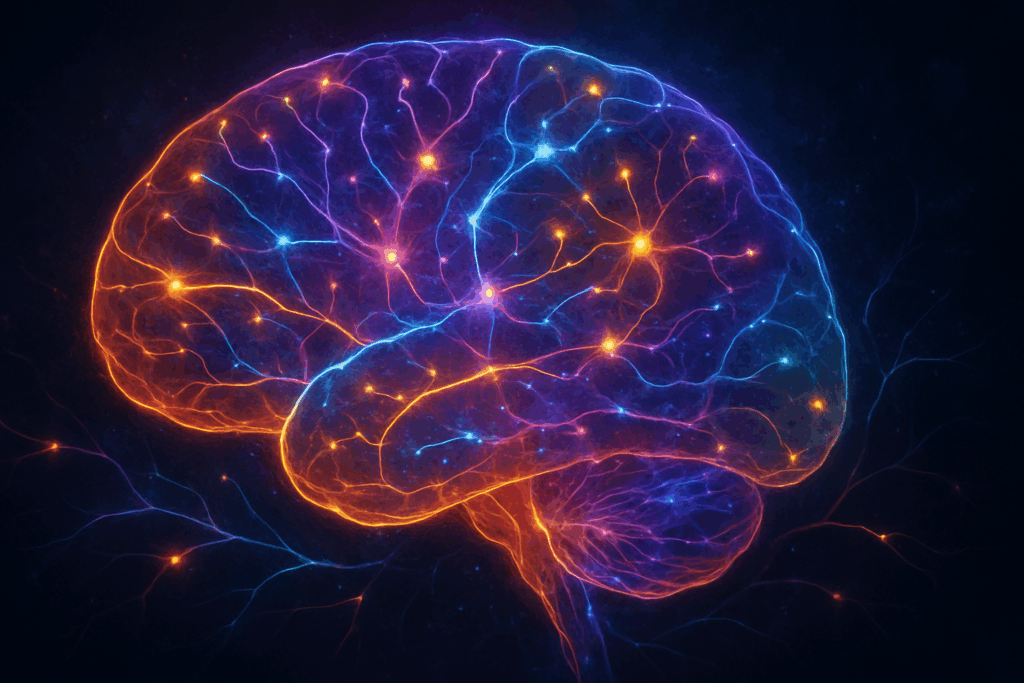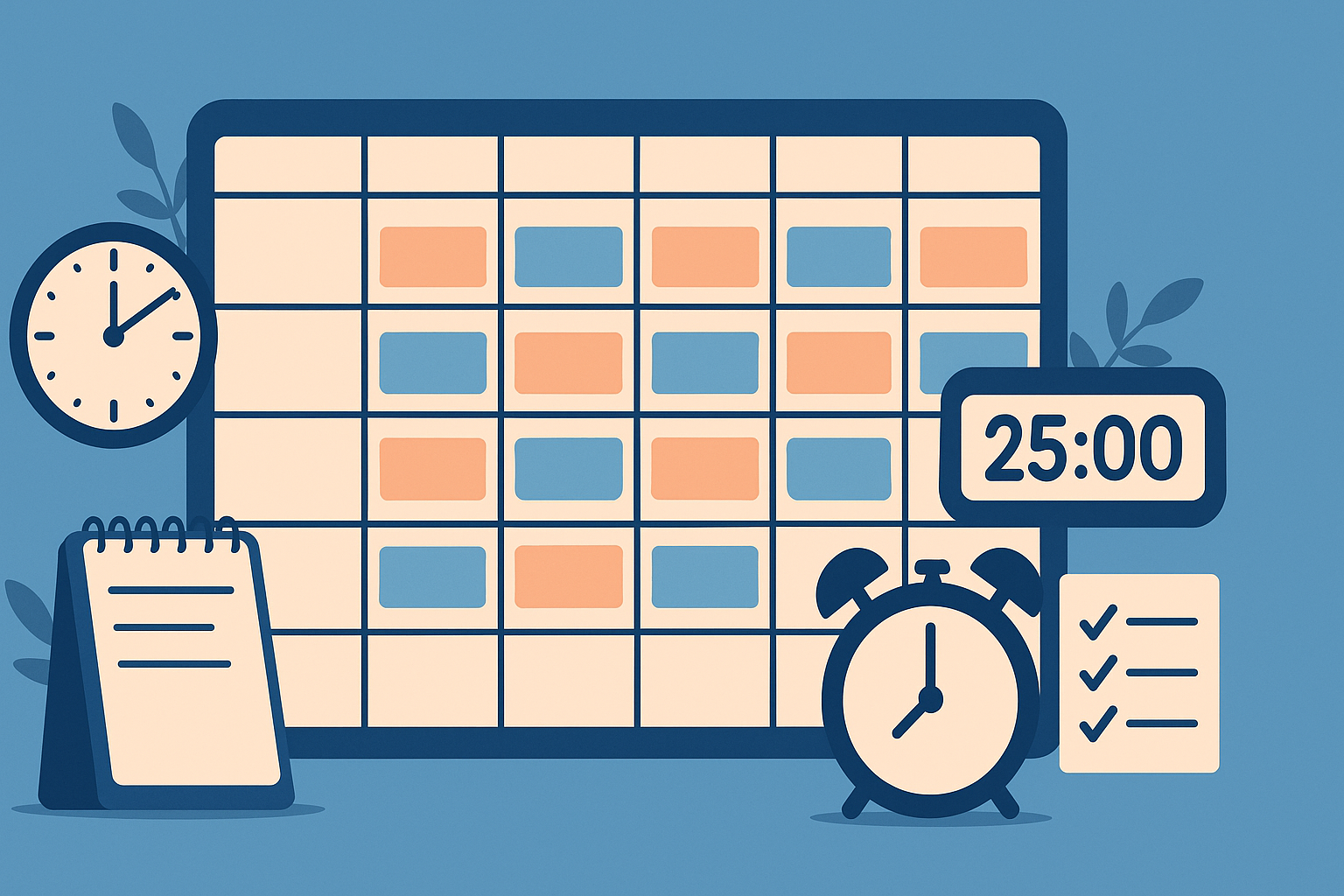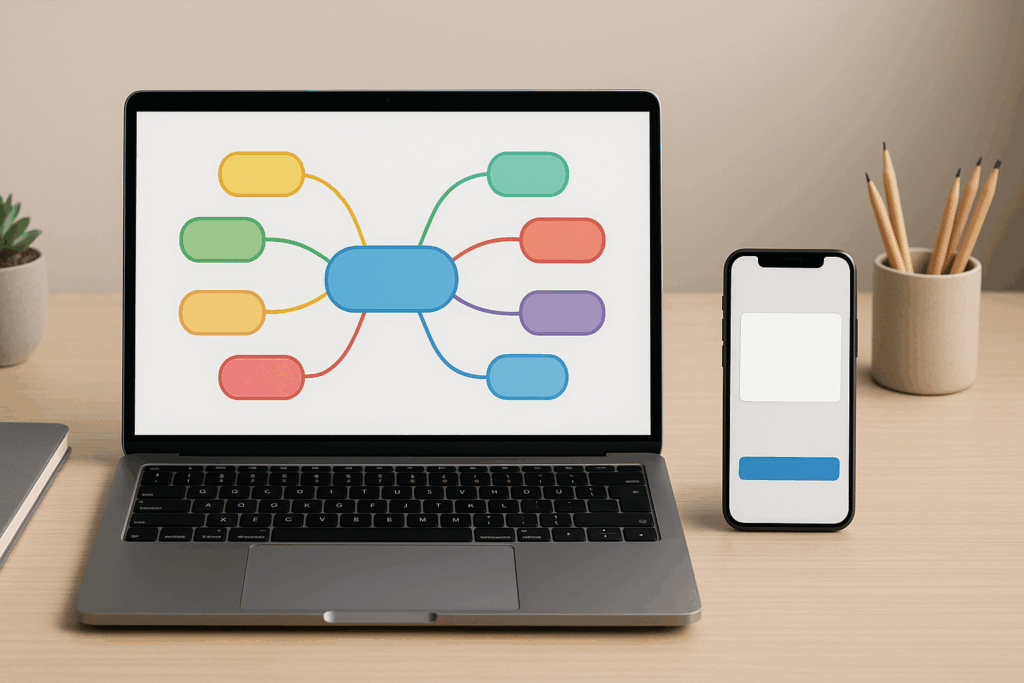Introduction: Mastering Information Retention for Academic Success
In the demanding landscape of modern education, the ability to study effectively and retain information is a crucial skill that can determine academic outcomes. Whether you are preparing for a critical final exam or grappling with complex, uninspiring material, knowing the best way to retain information when studying can dramatically improve your efficiency and confidence. Despite advancements in educational techniques, many students still struggle with how to retain boring stuff or process information better under pressure. This comprehensive guide is designed to equip you with scientifically grounded strategies, practical techniques, and cognitive insights, ensuring you know exactly how to retain information when studying for an exam or handling overwhelming volumes of content. By applying the best study methods to retain information, you will not only perform better academically but also enhance your long-term cognitive skills and mental agility.
You may also like: Best Herb for ADHD Support: How Natural Remedies and Herbs for ADHD Women May Help Boost Focus and Calm
The Science of Memory: Understanding How We Retain Information
Before diving into specific strategies, it is important to understand the underlying mechanisms that govern memory and learning. Memory formation involves three key stages: encoding, storage, and retrieval. Encoding is the process by which new information is initially perceived and processed; storage refers to maintaining that information over time; retrieval involves accessing stored information when needed. To improve how to retain information while studying, it is essential to optimize each of these stages.

Studies in cognitive psychology reveal that emotionally engaging, meaningful material is encoded more effectively than bland, abstract information. Unfortunately, when learning how to retain boring stuff, you face the challenge of making dry material emotionally salient. Techniques such as visualization, association, and story-building are effective because they imbue otherwise mundane information with personal relevance and emotional engagement. Therefore, the best ways to retain information while studying often involve transforming raw data into vivid, memorable narratives that resonate with your mind’s natural tendencies.
Overcoming Boredom: Strategies for Engaging with Uninteresting Material
One of the major hurdles in academic success is learning how to retain boring stuff. Whether it’s dense legal cases, tedious historical dates, or dry scientific facts, the key to overcoming boredom lies in active learning. Passive reading or rote memorization rarely yields lasting results. Instead, techniques such as elaborative interrogation—asking “why” questions about facts—force the brain to create connections between new information and existing knowledge.

Another effective approach is the use of the “generation effect,” where generating answers or solutions actively, rather than passively reviewing information, significantly boosts retention. For instance, when studying vocabulary, attempting to use new words in original sentences rather than merely reading definitions helps you retain information quickly and more permanently. Additionally, teaching the material to an imaginary audience is a time-tested method of reinforcing understanding, known as the “protégé effect.”
Optimizing Study Sessions: Structuring Time for Maximum Retention
A well-organized study schedule is crucial for those seeking the best way to retain information when studying. Cognitive science supports the “spacing effect,” which posits that spreading study sessions out over time yields better retention than cramming. When you space your learning sessions, you give your brain time to consolidate memories, making retrieval more effortless and robust.
Implementing the Pomodoro Technique, where you study intensely for 25 minutes followed by a 5-minute break, can enhance concentration and prevent burnout. Furthermore, starting study sessions by reviewing material from the previous session strengthens neural connections and primes the brain for new learning. If you wonder how to study a lot of information without feeling overwhelmed, adopting these time-structuring techniques will make vast amounts of data more manageable and less intimidating.

Active Recall and Retrieval Practice: The Cornerstones of Effective Studying
Research consistently identifies active recall—the practice of retrieving information from memory without cues—as one of the best ways to retain information while studying. Unlike passive review, active recall strengthens memory pathways and enhances long-term retention. Techniques such as flashcards, self-quizzing, and practice tests effectively employ active recall.
Similarly, retrieval practice, where you deliberately pull information from memory over increasing intervals (known as “spaced repetition”), ensures that the information is deeply embedded in your long-term memory. If you are wondering how to retain information when studying for an exam, incorporating regular, timed self-tests into your schedule is a research-backed strategy that vastly improves performance.
Multisensory Learning: Engaging Multiple Modalities for Deeper Processing
One often overlooked method for how to process information better involves engaging multiple senses during learning. Reading material aloud, listening to educational podcasts, drawing diagrams, and using tactile models activate different regions of the brain, facilitating stronger and more complex neural networks.

my may find it far easier to retain information quickly when they supplement textbook reading with 3D models or augmented reality applications. Similarly, recording yourself explaining a concept and listening to it during a walk can transform passive commuting time into productive study hours. Incorporating multisensory elements into your study routine not only breaks the monotony but also ensures that you approach learning from various cognitive angles.
Nutrition and Cognitive Performance: Fueling the Brain for Optimal Retention
It would be incomplete to discuss the best study methods to retain information without addressing the role of nutrition. Your brain is metabolically expensive, consuming about 20% of your body’s energy. Certain foods and nutrients have been scientifically shown to enhance memory, concentration, and overall cognitive function.
For example, omega-3 fatty acids found in fish, walnuts, and flaxseeds are crucial for maintaining healthy neuronal membranes and promoting synaptic plasticity. B vitamins, particularly B6, B9 (folate), and B12, are essential for the production of neurotransmitters involved in memory and learning. Similarly, antioxidants found in berries, dark chocolate, and leafy greens protect the brain from oxidative stress, supporting long-term cognitive health.
Hydration also plays a critical role. Even mild dehydration can impair attention, memory, and executive function. Therefore, optimizing your diet and fluid intake is an essential, often underestimated factor in learning how to retain information while studying.
The Role of Sleep: Consolidating Memories for Long-Term Storage
The brain requires sleep to consolidate memories and integrate new knowledge. Numerous studies have shown that learning sessions followed by adequate sleep lead to significantly better retention compared to late-night cramming sessions devoid of rest. Deep sleep stages, particularly slow-wave sleep, are critical for memory consolidation.
To maximize how to retain information for a test, prioritize a consistent sleep schedule, aiming for 7 to 9 hours of quality sleep per night. Short naps of 20–40 minutes can also be remarkably effective for boosting learning efficiency, especially when timed strategically between study sessions. Understanding that sleep is not “lost time” but a vital component of studying helps reframe rest as an active part of your academic preparation.
Mindfulness and Stress Reduction: Creating a Brain-Friendly Learning Environment
High levels of stress negatively impact cognitive function, particularly memory retention and executive functioning. Cortisol, the stress hormone, can inhibit hippocampal function, directly impairing your ability to store new information. Therefore, incorporating stress management techniques into your study routine is critical for those looking for the best way to retain information when studying.
Mindfulness practices, such as deep-breathing exercises, meditation, and even brief mindful walks, have been shown to lower cortisol levels and enhance cognitive flexibility. Setting up a clean, organized, and comfortable study environment, free of digital distractions, further promotes focus and efficiency. By nurturing your mental and emotional well-being, you create a fertile ground for intellectual growth.
Harnessing Technology: Smart Tools to Aid Memory and Retention
Today’s learners have access to an unprecedented range of technological tools designed to facilitate the best study methods to retain information. Apps like Anki and Quizlet, which use spaced repetition algorithms, are particularly effective for memorizing vast quantities of data.
Moreover, digital mind-mapping tools like MindMeister and Coggle allow you to visually organize information, making it easier to see relationships between concepts. Audio recording applications enable you to capture lectures or your own voice, turning passive listening into active reinforcement. Judiciously used, technology can accelerate how to study a lot of information without sacrificing depth or accuracy.
Cognitive Biases and Memory Errors: Avoiding Common Pitfalls
Despite best efforts, certain cognitive biases can sabotage learning. The “fluency illusion” occurs when information feels familiar but is not actually well-encoded—a common pitfall when merely re-reading notes. Another bias, “confirmation bias,” leads learners to pay more attention to information that aligns with their existing beliefs, ignoring contradictory yet crucial material.
Understanding which technique would not help you remember information is as important as knowing what techniques are effective. For example, massed practice—cramming all material in one long session—creates a false sense of mastery but leads to rapid forgetting. Recognizing these biases allows you to adopt more scientifically grounded approaches, ensuring that your study methods genuinely enhance retention.

FAQ: Best Study Methods to Retain Information and Improve Cognitive Processing
What is the best way to retain information when studying complex subjects?
The best way to retain information when studying complex subjects is to use active retrieval methods combined with spaced repetition. Instead of rereading material passively, try quizzing yourself or teaching the content to someone else. Incorporating multiple study sessions over several days, rather than cramming, allows for stronger neural encoding. It also helps to interleave subjects during your study time, which has been shown to improve the brain’s ability to differentiate and retain complex information. Additionally, creating concept maps that visually connect ideas can be especially effective for students learning how to study a lot of information quickly.
How can I make boring material more memorable during study sessions?
Understanding how to retain boring stuff starts with reframing the material to connect it to your personal interests or goals. Creating vivid mental imagery, like turning dull facts into a colorful story, can significantly enhance memory retention. Some students even compose songs or rhymes to make dry material more engaging. You might also change your study environment to make sessions feel less tedious, such as studying outdoors or in a cozy cafe. Overall, making boring material feel personally meaningful is one of the best study methods to retain information without feeling mentally fatigued.
What is the fastest way to retain information for a test or exam?
When time is short, the best way to retain information when studying for an exam is to use “rapid recall” techniques. This involves setting a timer and forcing yourself to write down everything you remember from a study session without looking at notes. Reviewing your mistakes immediately afterward boosts learning efficiency. Pairing rapid recall with high-intensity interval studying (short, focused sprints) can help you retain information quickly while minimizing mental burnout. Ultimately, combining urgency with structured, retrieval-based practices provides the fastest path to lasting retention.
How can I improve the way I process and organize new information?
Learning how to process information better requires understanding cognitive chunking—grouping related information into manageable units. For example, remembering a phone number as “555-132-879” instead of “5-5-5-1-3-2-8-7-9” dramatically reduces cognitive load. Creating hierarchies, analogies, and mnemonics also helps organize incoming information into your long-term memory. Additionally, using digital tools like mind-mapping apps can aid in visualizing connections between ideas. These strategies make it easier to handle larger volumes of material, particularly when you’re figuring out how to study a lot of information efficiently.
Which technique would not help you remember information effectively?
One technique that would not help you remember information effectively is passive highlighting without engagement. Simply coloring text without summarizing or questioning the material tricks the brain into feeling productive while offering minimal retention benefits. Research shows that passive review methods like rereading and highlighting are some of the least effective when aiming for the best ways to retain information while studying. Active engagement, such as self-testing or teaching the material aloud, far outperforms passive methods. Always choose strategies that demand cognitive effort, as they lead to deeper learning.
How can I manage studying large volumes of material without feeling overwhelmed?
Managing heavy information loads when figuring out how to study a lot of information starts with strategic prioritization. Begin by identifying “high-yield” concepts—the material most likely to appear on exams or critical assessments. Breaking content into smaller chunks and setting daily micro-goals keeps momentum steady and manageable. Alternating study topics (a technique known as interleaving) also prevents mental fatigue and helps you retain information when studying long lists of data. Lastly, practicing active recall consistently ensures that even large quantities of material become deeply embedded in memory.
Are there specific foods or supplements that enhance study performance and memory retention?
Emerging research suggests that foods rich in omega-3 fatty acids, antioxidants, and B vitamins are beneficial for students seeking the best way to retain information when studying. Salmon, walnuts, blueberries, and leafy greens support brain health and memory consolidation. Some nootropic supplements, such as Lion’s Mane mushroom and bacopa monnieri, have shown promise in preliminary studies for improving cognitive flexibility. However, a balanced diet paired with proper hydration remains the foundation for cognitive performance. If you want to retain information quickly and process information better, starting with brain-healthy nutrition is a powerful, evidence-backed approach.
What role does emotional engagement play in retaining difficult or boring information?
Emotional engagement is a critical, often underutilized element when learning how to retain boring stuff. The brain prioritizes emotionally charged memories because they are perceived as more relevant to survival or personal well-being. By associating dry material with personal stakes—such as future career success or the satisfaction of mastering a challenge—you can elevate its emotional salience. Even using humor or absurdity to “rebrand” boring information can dramatically increase retention. Thus, fostering emotional engagement transforms tedious content into compelling, memorable material, enhancing how to retain information while studying.
How important is review timing when trying to retain information for a test?
The timing of review sessions plays a massive role in learning how to retain information for a test. Reviewing material too soon after initial exposure provides minimal benefits because the brain hasn’t had time to encode the information deeply. Instead, spacing reviews progressively over days and weeks—a principle known as spaced repetition—maximizes retention. Strategic timing also leverages the “forgetting curve,” reinforcing memory just as it begins to fade. Mastering the timing of your study reviews is one of the best study methods to retain information without wasting effort.
Can mindfulness practices help students retain information more effectively?
Mindfulness techniques can significantly enhance cognitive control, making them valuable tools for those figuring out how to retain information when studying. Mindful breathing exercises, for instance, reduce cognitive clutter and improve focus during study sessions. Longer-term mindfulness practice has also been shown to increase working memory capacity—the brain’s ability to hold and manipulate information temporarily. Students who incorporate short mindfulness breaks into their study routines often find it easier to process information better and manage academic stress. Thus, cultivating mindfulness may not only improve mental health but also enhance your ability to study a lot of information with greater ease and clarity.

Conclusion: Building a Lifelong Foundation for Learning and Cognitive Mastery
In sum, mastering how to retain information when studying requires a multifaceted approach that integrates cognitive science, practical strategies, and personal well-being. From understanding the neuroscience of memory to applying active recall and retrieval practices, the best way to retain information when studying involves both art and science. Overcoming the challenge of how to retain boring stuff requires creativity, engagement, and strategic transformation of uninteresting material into memorable content.
Optimizing nutrition, sleep, and stress levels provides a biological foundation that supports cognitive performance, while mindfulness practices and strategic use of technology further enhance the learning process. Recognizing which technique would not help you remember information and avoiding cognitive biases protects your efforts from common pitfalls. Above all, treating learning as a holistic process—nourishing mind, body, and environment—ensures lasting academic success and a powerful, resilient mind prepared for lifelong intellectual challenges.
Further Reading:
10 Proven Study Tips to Retain Information
5 Tips to Retain What You Learn
How can I effectively study for exams and retain information for the long term?


